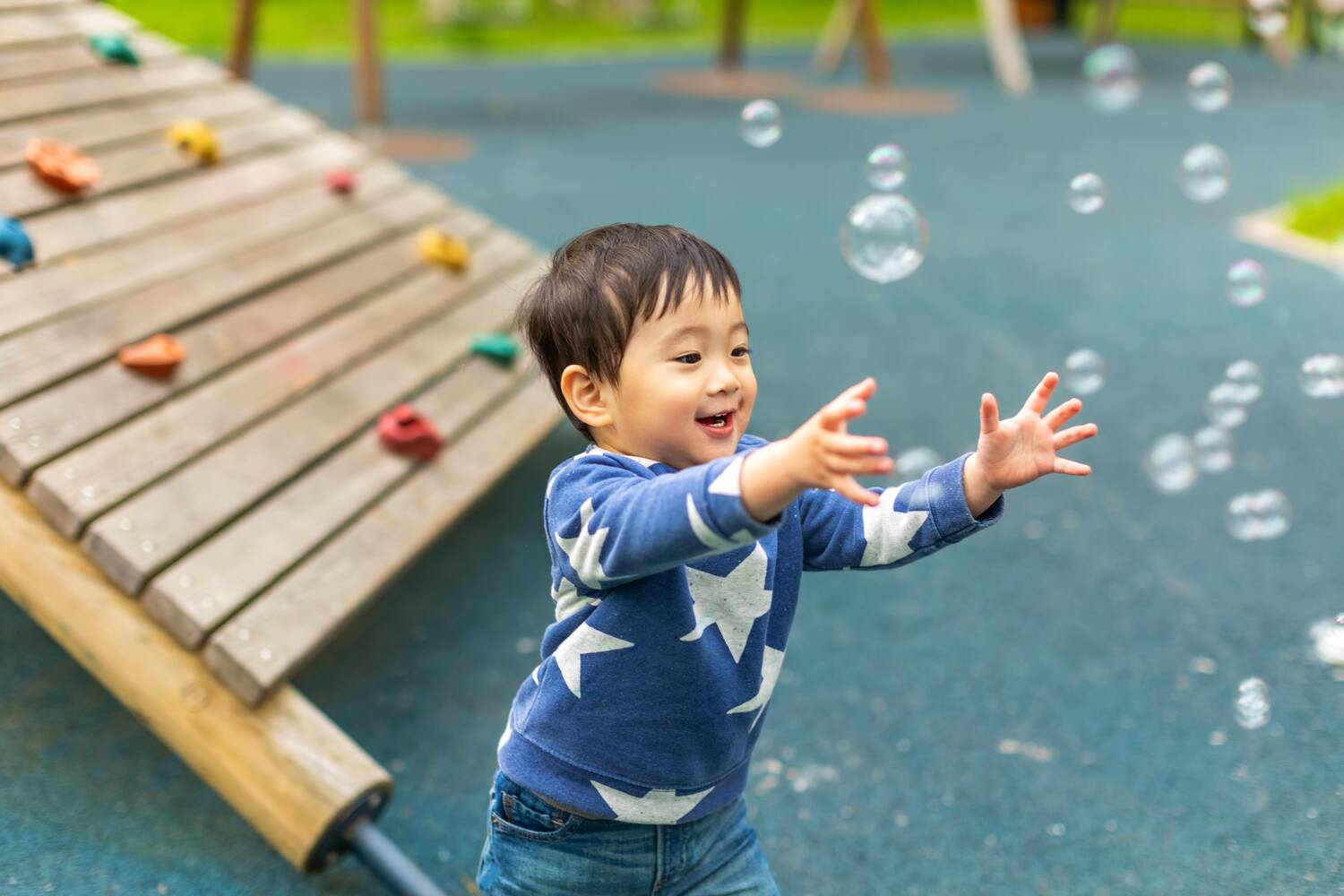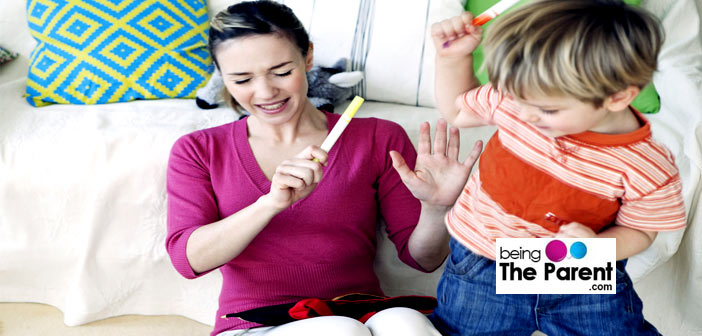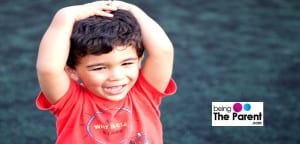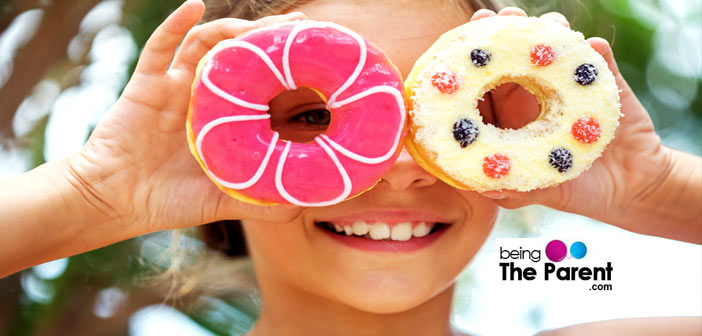
Every time you complain to someone about how active your child is and how he seems to be having infinite amount of energy, you are probably greeted with a knowing smile and a generalized “all kids are like that” or “kids will be kids” statement. However, you have seen other kids – you are sure there is a difference between other kids’ naturally active behavior and your child’s hyperactive one.
So, stop listening to generalizations and downplays. There is no doubt that it is very challenging to cope up with and engage a hyperactive child.
First step is to understand the reason for your child’s hyperactivity. Some kids are hyperactive by nature, while others are hyperactive to draw attention from parents. The latter is a trickier situation, so let us look into that first:
Does My Child Have ADHD (Attention Deficit Hyperactivity Disorder)?
Sometimes, kids are hyperactive because they feel they do not get enough attention from their parents. The hyperactivity arising from this is called attention deficit hyperactivity disorder (ADHD). Since ADHD requires behavioral therapy, as a step 1, you need to evaluate if your child has ADHD.
What Are The Signs Of ADHD In Kids?
Kids with ADHD are generally very impulsive, they have problems staying still and paying attention and they find it difficult to follow instructions. They also exhibit other inappropriate behaviors such as interrupting conversations repeatedly, running in the halls and general disobedience. ADHD children also tend to be disorganized, distracted, or forgetful, often unable to make friends, and often loose things. They tend to exhibit the emotions of anger, desperation, sadness, and frustration.
We know! This sounds like ALL kids, right? Every child tends to demonstrate this kind of behavior once in a while, and it does not imply ADHD. This is why ADHD goes unrecognized in smaller kids as most of them are prone to such restlessness and short attention spans.
Seek Medical Advice For ADHD
So how can you be sure? Before you even see a doctor, monitor your child. See if the behavior is “once in a while” or “always“. If the child exhibits difficulty to concentrate both at school or home consistently then you might want to talk to his doctor about ADHD. Once the doctor or a specialist confirms ADHD, then there are many ways of dealing with this including medications that help kids pay attention and behavioral therapies that help them control their behavior. Some kids are advised to take medicines, which will control the symptoms of ADHD. These medicines do not do away with ADHD, but help kids do better in life. These kids are also taught to deal with their intense emotions, coupled with relaxation techniques.
If your child does not have ADHD, then read on for 10 ways to handle hyperactivity.

10 Tips to Handle Hyper Active Children
-
- Turn hyperactivity into productivity: The incredible amount of energy and restlessness your child exhibit can be channeled into productivity, which ensures the child is engaged effectively and at the same time he learns how to focus and concentrate. Some of the example activities are:
- Sports: Most sports-related activities will be beneficial for your child, but look for team sports like football that will encourage your child to work and cooperate with others and martial arts that will help your child to balance and focus well
- Dance, Music, Theater: Try to find out which of these three the child is interested in. Dance is a great let out for that extra energy and a great way to learn coordination; Music requires the brain to multi-task; Drama requires the child to memorize – all of which help in self-discipline and control
- Arts and Crafts: Sketching, painting, pottery, model-building, word works – all of which are great ways to engage a hyperactive child and bring his creativity out
- Practice deep breathes: Deep breathing, and the consequent extra oxygen in the brain, does wonders to calm oneself when feeling aggressive. Teach your child the technique of taking deep breathes and encourage them to do it every time they feel angry or aggressive. This will prevent them from hurting themselves or others and stop inappropriate behavior including throwing things
- Simplify instructions: It is difficult for them to remember long instructions. Break it down to small sentences and keep the number of them short. Encourage them to look in your eye as you pass the information. Have them repeat the instructions back to you once
- Create a to-do list for them: As mentioned before, hyperactive kids tend to be forgetful. Create a to-do list for them with all the activities they are expected to complete in one day. This list acts as their reference point. Every time a task is completed, cross it in the list and ask them to pick the next task in the list
- Turn hyperactivity into productivity: The incredible amount of energy and restlessness your child exhibit can be channeled into productivity, which ensures the child is engaged effectively and at the same time he learns how to focus and concentrate. Some of the example activities are:

- Provide positive reinforcement: Applaud them when they behave right. Shower them with praise when they complete a task well. Reward them when they have completed a set of tasks well. Positive reinforcement goes a long way in building confidence in your child that they can be responsible, and that you care for them and notice their efforts
- Ask them to help around in the house: Give them a sense of responsibility. Once they are back from school, ask them to help you in house work – laying out the dinner table, making a salad or vacuuming/dusting a room – anything that will help them feel like they are spending quality time with you
- Set up a clean, distraction-less workspace: Hyperactive kids are easily distracted. Something as small as a piece of paper on the floor can impact their concentration. So when it is homework or study time, put them in a room that is devoid of anything that can be distracting. Do not seat them next to a window (lest they peak out and stay that way!) or doors (so that they wouldn’t have the urge to run out)
- Try alternative healing methods: We all know that yoga and meditation helps us be calm and be at peace with oneself. So why not encourage your child to practce it? It will help them control their mind in a more structured fashion
- Be attentive: Are they behaving badly to attract attention? Give it to them. Not when they are misbehaving, because that will be reinforcing their behavior. But generally, shower them with more love and attention although we are sure you are already spending as much time as you can with them. Have 2-3 daily activities exclusively for you and your child – it could be a morning walk every day or a daily bed-time chat/story
- Let it go sometimes: If you have a hyperactive child, most likely you will be forced to react to countless inappropriate acts daily. Pick your battles wisely. Do no react and reprimand for everything. Understand that your child’s brain is wired differently and there is a reason he does what he does. They cannot see the reasoning you give, and definitely not 10 times a day. So focus on issues that are really important for you and your family and save your energy on others!

Hyperactive Child And Sugar
Some people feel that eating too much sugar causes over activity and energy in kids. However, the link between sugar and hyper activity has not been established by science, and the space of research in the field is vastly not yet explored. However, sugar is anyway not a very great thing to gorge on, ADHD or no ADHD. Eliminating sugar from his diet will not help, so do not just get obsessed by cutting it on. ADHD however, is found to run in families, so genetics probably have a role to play.
Happy Parenting!

